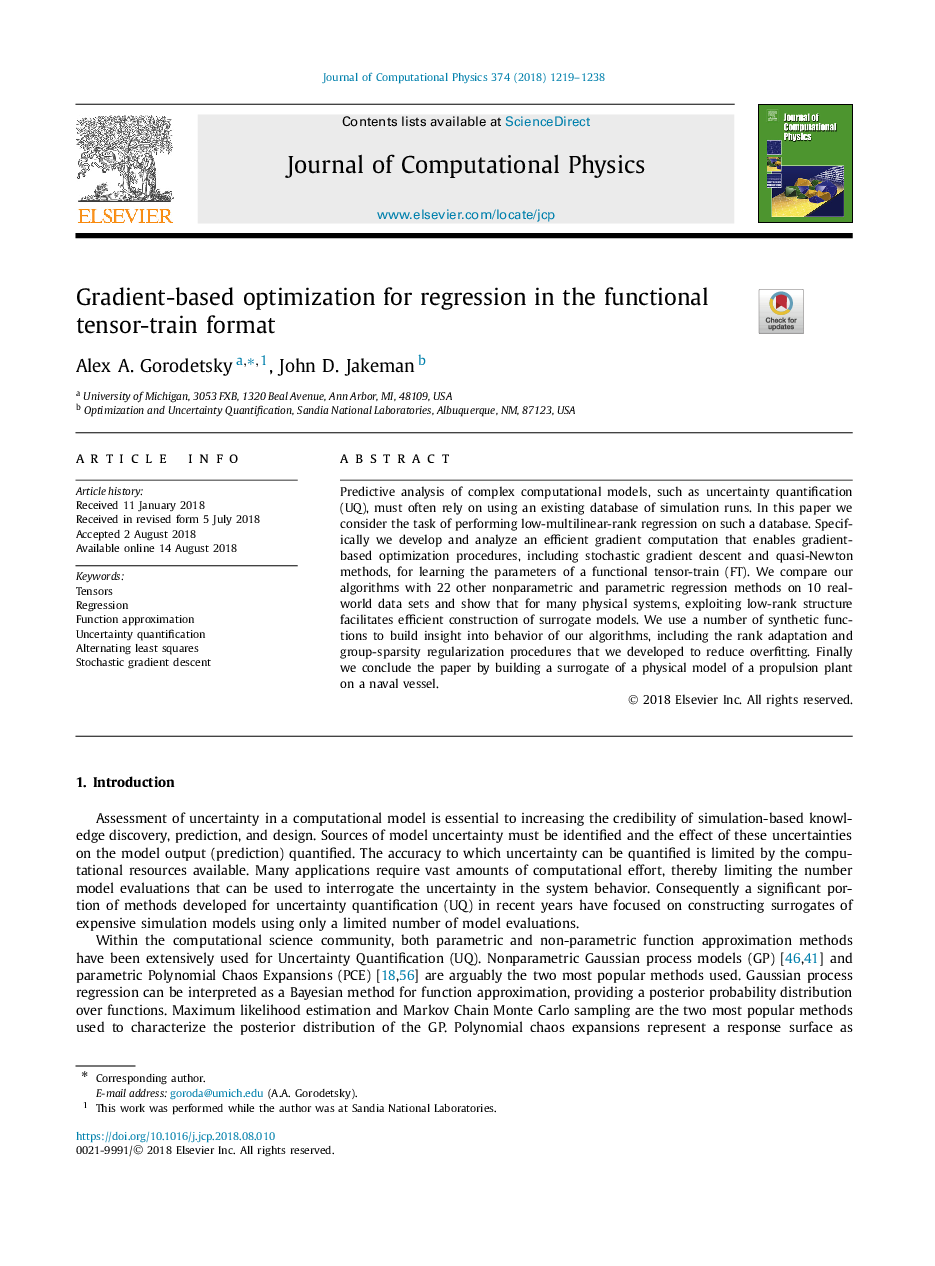| Article ID | Journal | Published Year | Pages | File Type |
|---|---|---|---|---|
| 11002791 | Journal of Computational Physics | 2018 | 20 Pages |
Abstract
Predictive analysis of complex computational models, such as uncertainty quantification (UQ), must often rely on using an existing database of simulation runs. In this paper we consider the task of performing low-multilinear-rank regression on such a database. Specifically we develop and analyze an efficient gradient computation that enables gradient-based optimization procedures, including stochastic gradient descent and quasi-Newton methods, for learning the parameters of a functional tensor-train (FT). We compare our algorithms with 22 other nonparametric and parametric regression methods on 10 real-world data sets and show that for many physical systems, exploiting low-rank structure facilitates efficient construction of surrogate models. We use a number of synthetic functions to build insight into behavior of our algorithms, including the rank adaptation and group-sparsity regularization procedures that we developed to reduce overfitting. Finally we conclude the paper by building a surrogate of a physical model of a propulsion plant on a naval vessel.
Keywords
Related Topics
Physical Sciences and Engineering
Computer Science
Computer Science Applications
Authors
Alex A. Gorodetsky, John D. Jakeman,
